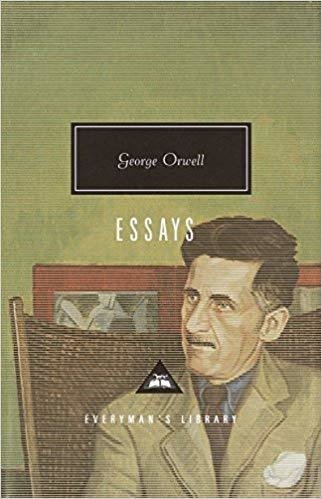Essays (Everyman's Library Contemporary Classics Series)
Editorial Reviews
Review
“Orwell is the most influential political writer of the twentieth century…He gives us a gritty, personal example of how to engage as a writer in politics.” –New York Review of Books
“[Orwell] evolved, in his seemingly offhand way, the clearest and most compelling English prose style this century…But of course he was more than just a great writer. We need him today because [of] his passion for the truth.” –The Sunday Times (London)
“Had Orwell lived to a full term, he might well have gone on to become the greatest modern literary critic in the language. But he lived more than long enough to make writing about politics a branch of the humanities, setting a standard of civilized response to the intractably complex texture of life.” –The New Yorker
“The real reason we read Orwell is because his own fault-line, his fundamental schism, his hybridity, left him exceptionally sensitive to the fissure–which is everywhere apparent–between what ought to be the case and what actually is the case. He says the unsayable.” –Financial Times
“Orwell was the conscience of his generation.” –V. S. Pritchett
Product details
- Series: Everyman's Library Contemporary Classics Series
- Hardcover: 1416 pages
- Publisher: Everyman's Library; Second Printing edition (October 15, 2002)
- Language: English
- ISBN-10: 0375415033
- ISBN-13: 978-0375415036
- Product Dimensions: 5.6 x 2.5 x 8.3 inches
- Shipping Weight: 2.8 pounds
Why us?
Writing an essay is extremely useful because it allows the author to learn how to clearly and correctly formulate thoughts, structure information, use basic concepts, highlight cause-effect relationships, illustrate experience with relevant examples, and argue their conclusions.
The books have a special charm; books cause us pleasure: they talk to us, give us good advice, they become living friends for us.

About Shop

James Hall
store owner
The Big Encyclopedic Dictionary gives the following definition: "Essay is a genre of philosophical, literary-critical, historical-biographical, journalistic prose, combining the author’s emphasized individual position with a relaxed, often paradoxical presentation, focused on spoken language."
